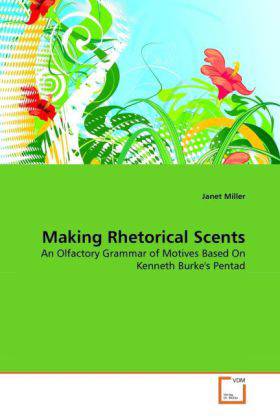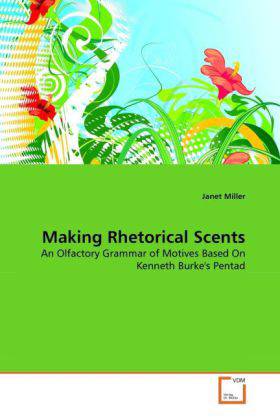
Bedankt voor het vertrouwen het afgelopen jaar! Om jou te bedanken bieden we GRATIS verzending (in België) aan op alles gedurende de hele maand januari.
- Afhalen na 1 uur in een winkel met voorraad
- In januari gratis thuislevering in België
- Ruim aanbod met 7 miljoen producten
Bedankt voor het vertrouwen het afgelopen jaar! Om jou te bedanken bieden we GRATIS verzending (in België) aan op alles gedurende de hele maand januari.
- Afhalen na 1 uur in een winkel met voorraad
- In januari gratis thuislevering in België
- Ruim aanbod met 7 miljoen producten
Zoeken
Making Rhetorical Scents
An Olfactory Grammar of Motives Based On Kenneth Burke's Pentad
Janet Miller
Paperback | Engels
€ 68,45
+ 136 punten
Omschrijving
Scent is inherently persuasive, but the language of scent is largely missing from rhetoric's vocabulary. This is because language cannot express the truth of an odor. Identification of odor as substance is dependent on consubstantiality between the author and reader. We instead describe smells using metaphorical language, or by invoking episodic memories and emotional reactions. In this way, scent is dramatistic. In order to consider the possibility of a grammar of scent beyond metaphor, the author develops an olfactory pentad (Sniff, Context, Emanation, Odor Object, and Response) by applying the framework of Kenneth Burke's dramatistic pentad. In this way, scent is exposed as a powerful rhetorical substance separate from human motive, but motivating in and of itself. The author then explores implications for a rhetoric of scent beyond the literate tradition.
Specificaties
Betrokkenen
- Auteur(s):
- Uitgeverij:
Inhoud
- Aantal bladzijden:
- 80
- Taal:
- Engels
Eigenschappen
- Productcode (EAN):
- 9783639344127
- Verschijningsdatum:
- 30/03/2011
- Uitvoering:
- Paperback
- Afmetingen:
- 152 mm x 229 mm
- Gewicht:
- 127 g

Alleen bij Standaard Boekhandel
+ 136 punten op je klantenkaart van Standaard Boekhandel
Beoordelingen
We publiceren alleen reviews die voldoen aan de voorwaarden voor reviews. Bekijk onze voorwaarden voor reviews.









